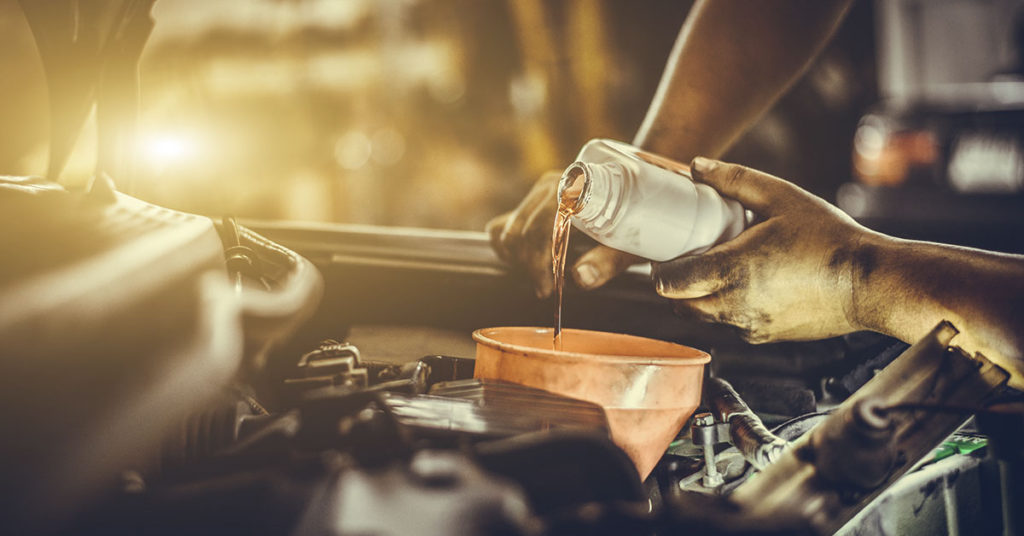Cars are essential in our daily lives, helping us easily get from place to place. To ensure your vehicle stays in tip-top shape, there are certain things you should never do to your car. Ignoring these practices can lead to costly repairs and a shorter lifespan for your beloved ride. In this listicle, we’ll discuss 15 things you should avoid doing to your car, each accompanied by some simple explanations and tips to keep your vehicle running smoothly.
1. Use the Wrong Coolant/Antifreeze

The right coolant is crucial for your car’s engine and cooling system. Mixing different types of coolant or using the wrong one can lead to corrosion, premature water pump, radiator, and heater core failure. Consult your owner’s manual to find the right coolant and save yourself from costly repairs.
2. Overfill Your Tires

Inflating your tires beyond the recommended pressure levels may seem like a way to save on fuel, but it can lead to various issues. Over-inflated tires reduce your car’s handling, create a rougher ride, and wear out suspension components faster. Stick to the recommended tire pressure for optimal performance.
3. Disconnect a Battery Cable to Check Your Alternator

Old tricks of disconnecting a battery cable to check the alternator no longer apply to modern vehicles. This practice can cause severe damage to the computerized systems and electronics in newer cars. Instead, use a volt meter or get a free charging system diagnostic test at an auto parts store.
4. Drive On Less Than a Quarter Tank

Regularly driving with less than a quarter tank of gas can cause the fuel pump to overheat and wear out prematurely. Maintain your fuel system’s health by keeping the tank above the quarter mark.
5. Drive Aggressively

Avoid slamming on the gas and brakes aggressively when driving. This driving style can lead to excessive wear on your vehicle, negatively impacting both its lifespan and your fuel efficiency.
6. Confuse Brake Fluid with Power Steering Fluid

One-pint bottles of power steering fluid and brake fluid might look alike, but mixing them up can lead to disastrous consequences. Power steering fluid swells brake system seals, potentially causing brake failure. On the other hand, brake fluid in the power steering reservoir can lead to pump and steering gear failure. Always double-check before refilling to prevent expensive repairs.
7. Use “All Encompassing” Fluids

While universal fluids claim to work for all cars, your vehicle may have specific requirements. Always refer to your owner’s manual to find the correct fluid for your transmission and power steering system.
8. Use Dishwashing Detergent to Wash Your Car

Dishwashing detergent is great for dishes but terrible for your car’s paint. It strips away wax and vital oils, exposing the paint to the elements. Instead, use car wash soap, designed to clean without removing protective wax and oils, keeping your car’s finish in excellent condition.
9. Continue Driving When Your Oil Light is On

When your oil light comes on, it’s a warning that your engine is low on oil or facing a more severe issue. Continuing to drive in this condition can result in catastrophic engine damage. Pull over, check the oil level, and add oil if needed to avoid expensive repairs.
10. Ignore Rust Buildup

Rust is your car’s enemy, and ignoring it can be a costly mistake. Surface rust may not seem bad, but it often conceals more significant damage. When you notice rust, inspect and address it promptly to prevent further deterioration. Regular maintenance and rust-proofing can help keep your car rust-free.
11. Leave Drinks in Your Car

Leaving beverages in your car during freezing temperatures can lead to messy and inconvenient situations as the liquids may freeze and expand, potentially causing containers to burst.
12. Have a Smoke While Pumping Gas

Smoking near gas pumps can be hazardous, as it risks igniting flammable gas fumes. Always follow safety guidelines and avoid smoking or using open flames at gas stations.
13. Use the Wrong Oil Type

Using the correct engine oil is essential for your car’s efficiency. The wrong oil viscosity can trigger warning lights and trouble codes. Stick with the oil recommended by your car manufacturer to avoid issues with components like turbochargers and variable valve timing systems.
14. Neglect to Check the Dipstick

Regularly checking your oil level and topping it off when necessary is vital for your engine’s health. Neglecting this routine can lead to premature wear and sludge deposits in your engine.
15. Drive Barefoot

While driving barefoot or with socks might seem comfortable, it’s safer and more effective to wear proper footwear when operating your vehicle. This ensures you can apply the necessary force on the pedals, especially in emergencies.
Following these 15 tips, along with consulting your owner’s manual, can help you maintain your car’s longevity and avoid expensive repairs. By paying attention to these straightforward practices, you’ll keep your vehicle in great shape and enjoy safer journeys on the road.
Sources
- “15 Things You Should Never Do To Your Car.” Family Handyman. Rick Muscoplat. September 28, 2023.
- “15 Things You’re Doing to Your Car That Mechanics Wouldn’t.” RD. Meghan Jones. May 10, 2023

